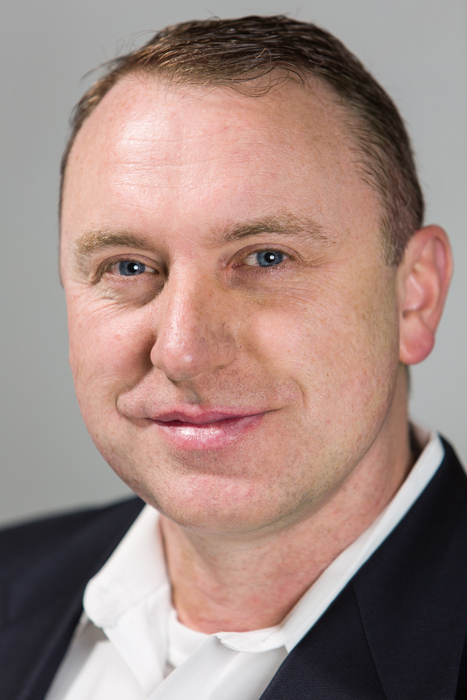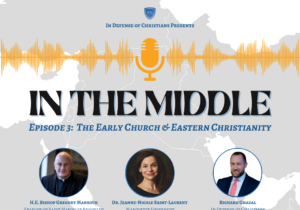Several weeks ago, First Things published a piece by contributor Sohrab Ahmari on “Against David French-ism,” a condemnation of a perspective represented by National Review writer David French. This broadside launched a debate within the conservative movement that has since resulted in a hundred articles and thousands of postings on social media.
While there are many nuances and side issues in the debate, the crux of the disagreement appears to be a general clash between two opposing political philosophies adopted by religious believers: Catholic integralism and classical liberalism.
In a future article, I’ll present and explain the roots and core tenets of classical liberalism. For now, here is what you should know about integralism:
1. Catholic Integralism (hereafter, integralism) holds that there are two powers that rule humanity: a temporal power (represented by the state) and a spiritual power (represented by the Catholic Church). Integralists believe that since man’s temporal end is subordinated to his eternal end, the temporal power (the state) must be subordinated to the spiritual power (the Church). The world in all its aspects is to take shape only under the direct or indirect action of the Church.
2. As R.R. Reno notes, the term “integralism” came into use during the modernist crisis in early-twentieth-century Catholicism. “It denoted the party opposed to liberalizing trends in European Catholicism,” says Reno. “The word suggests nostalgia for an earlier period, one in which the moral, cultural, and political life of Europe was organized around—integrated with—the authoritative teachings of the Church.”
3. Within the American political context, integralism is often associated with (if not a subset of) the religious dissent wing of post-liberalism. As Ross Douthat explains:
These are Western Christians, especially, who regard both liberal and neoconservative styles of Christian politics as failed experiments, doomed because they sought reconciliation with a liberal project whose professed tolerance stacks the deck in favor of materialism and unbelief. Some of these religious dissenters are seeking a tactical retreat from liberal modernity, a subcultural resilience in the style of Orthodox Jews or Mennonites or Mormons. But others are interested in going on offense. In my own church, part of the younger generation seems disillusioned with post-Vatican II Catholic politics, and is drawn instead either to a revived Catholic integralism or a “tradinista” Catholic socialism—both of which affirm the “social kingship” of Jesus Christ, a phrase that attacks the modern liberal order at the root.
Not all post-liberals who affirm Catholicism are integralist themselves. Some Catholic post-liberals who are sympathetic to many of the aims of integralism, yet who reject the label of integralist or distance themselves from the movement, include Notre Dame professor Patrick Deneen, First Things editor R.R. Reno, and Sohrab Ahmari of the New York Post.
4. As with most social theories, there is a wide range of views on what constitutes integralism. But a core idea of all forms of integralism is that Catholicism provides the only satisfactory basis for the ordering of society. Because ethical values determine social conduct and the Catholic Church sets the standard for morality, integralists believe the state has a duty to defend the interests of the Church. This makes integralism a movement that views the political sphere as a subset of the religious sphere.
5. A primary belief of integralism is that public life is an extension of interior life (i.e., a life dedicated to finding God in all things); the public life is everything that is not the interior life. As L. Brent Bozell, Jr. said, “This means that Christian politics is free to regard family and school, play and work, art and communication, the order of social relationships and the civil order, as integral parts of a whole: as integral and therefore mutually dependent aspects of civilization.”
6. Integralism is not the promotion of theocracy since it does not advocate that the church rule the state. Providence contributing editor Daniel Strand explains:
The state has its own integrity and is governed by natural law. Catholics think in terms of natural and supernatural goods. With the advent of Christianity, the state, as was the case prior, is no longer the guardian and enforcer of religious doctrine because the ends of religion are now supernatural and placed under the jurisdiction of the church. Divine law revealed through the ministry of Jesus Christ addresses humanity’s supernatural end. It is the church—and in Roman mind, the Roman Catholic Church alone—that is entrusted with the authority over this new supernatural order.
7. Rather than attempting to advance a theocracy, integralists want a Catholic confessional state. Thomas Pink, professor of philosophy at King’s College London says that “while the state remains the sovereign potestas[power] over civil questions, the Church is now the sole potestas[power] over religion, with a sovereign jurisdiction based on baptism to legislate for religion and to enforce that law through punishments.” Pink adds:
The state should publicly recognise the truth of the Catholic religion. But since religion is now a supernatural good, it entirely transcends the authority of the state, as natural goods such as transport and education do not. So when the state legislates and punishes for purely religious ends, such as to privilege a religion just on grounds of its truth or to further people’s salvation, it can only properly do so as agent for the authority of the Church—as the Church’s secular arm. And that the state, when publicly Christian and so directed by the Church, is bound to do—as canon 2198 of the 1917 Code reflects. Since the supernatural good of religion is higher than any natural good, the state should submit its authority to that of the Church in matters specific to religion, as (Leo XIII’s parallel) the body submits in intellectual matters to the soul.
8. For many integralists, the nation that comes closest to fulfilling their vision in the modern age is Poland. As Jozef Andrew Kosc says:
In Poland in 2018, an unabashedly Catholic society is fully integrated into a modern European polity and economy. This society represents an integral and democratic Catholicism, one that has resisted the anti-culture of postmodernism and neoliberal cosmopolitanism. Americans might describe it as a national Benedict Option—though the Poles would reject Rod Dreher’s term, since most have little conception of the aggressive secular liberalism that exists across the rest of the West. For them, cultural Catholicism is a normal way of life.
9. Integralists recognize the difficulty in implementing their political vision in America. “There is no country on earth today where an integralist program is likely to have any immediate success,” admits integralist Edmund Waldstein, O.Cist. One approach to moving toward integralism is ralliement, an idea derived from Leo XIII’s 1892 encyclical Au Milieu des Sollicitudes, which urged French Catholics to rally to the Third French Republic in order to transform it from within. A prominent advocate of ralliement is Adrian Vermeule, a professor of constitutional law at Harvard Law School. Vermeule’s strategic approach is for Catholics to “work within a liberal order towards the long-term goal, not of reaching a stable accommodation with liberalism, even in a baptized form, but rather with a view to eventually superseding it altogether.” His recommended tactical approach is to model the biblical figures of Joseph, Mordecai, Esther, and Daniel in co-opting the administrative state and promoting “integration from within”:
Insofar as these figures, like Joseph, Mordecai, and Daniel, hold posts as elite administrators—or if, like Esther, they gain the affection and respect of those who formally wield power, and thereby exert influence—they may even come to occupy the commanding heights of the administrative state. Again, this is not to be imagined as disloyal, or as anything but worthy service to the regime. But in the setting of the administrative state, these agents may have a great deal of discretion to further human dignity and the common good, defined entirely in substantive rather than procedural-technical terms.
Joseph, Mordecai, Esther, and Daniel, however, mainly attempt to ensure the survival of their faith communities in an interim age of exile and dispossession. They do not evangelize or preach with a view to bringing about the birth of an entirely new regime, from within the old. They mitigate the long defeat for those who become targets of the regime in liberalism’s twilight era, and this will surely have to be the main aim for some time to come. In the much longer run, it is permissible to dream, however fitfully, that other models may one day become relevant, in a postliberal future of uncertain shape.
Vermeule says that his version of ralliement focuses on executive-type bureaucracies rather than on parliamentary-democratic institutions.
10. In the article that launched the debate Ahmari claimed, “[President Trump’s] instinct has been to shift the cultural and political mix, ever so slightly, away from autonomy-above-all toward order, continuity, and social cohesion. He believes that the political community—and not just the church, family, and individual—has its own legitimate scope for action. He believes it can help protect the citizen from transnational forces beyond his control.” While most Christians would be surprised by that claim, for some integralists Trump is the champion they’ve been waiting for. As P.J. Smith says:
It seems to us self evident that Donald Trump, whether or not he could articulate his position in these terms, believes that it is possible to use state power to pursue a vision of the good. He is, as others have noted, inconsistent in this. However, it seems as though Trump has a few fixed ideas about what the common good of the United States requires and he is willing to exercise state power to achieve those ends. One can disagree with Trump’s concept of the good or his handful of fixed ideas or his implementations of state power in service of those ideas. But it seems to us beyond dispute that Trump is, in a way most presidents before him since Jimmy Carter have not been, willing to use state power to achieve these goals. To our mind, then, Trump represents, among many things, the beginning of a return to a vision of state power in American life that was last clearly represented by Richard Nixon.
Joe Carter is an adjunct professor of journalism at Patrick Henry College, an editor for several organizations, and the author of the NIV Lifehacks Bible.
Photo Credit: Coronation of Charles VII of France on July 17, 1429, in Reims Cathedral. By Jules Eugène Lenepveu, 1889, via Wikimedia Commons.







 Live in the DC area? Sign-up for Providence's in-person events list!
Live in the DC area? Sign-up for Providence's in-person events list!